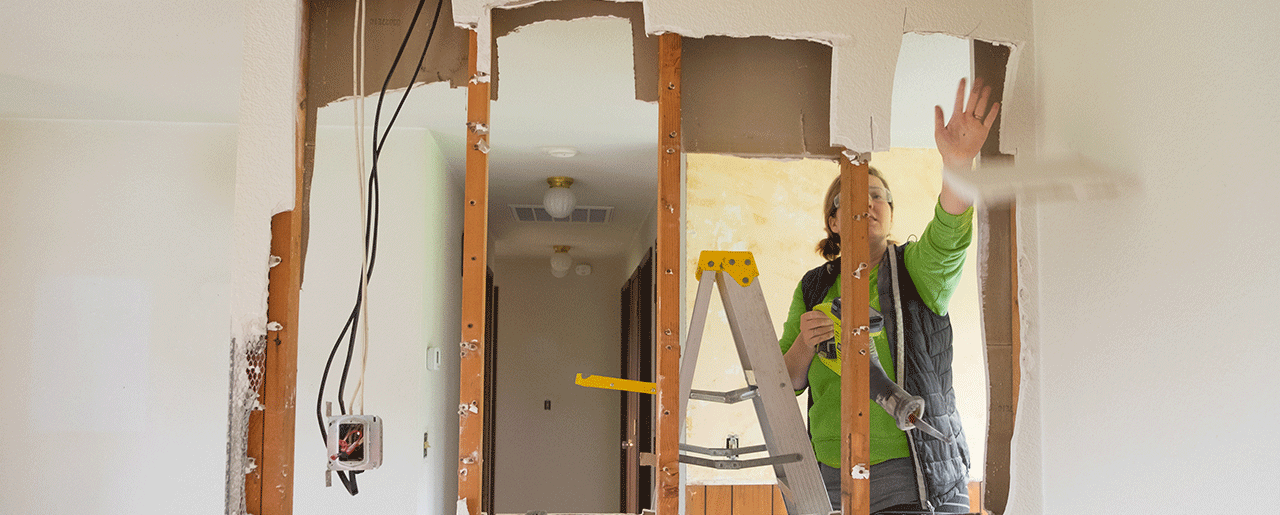On TV, it seems so easy: you buy a house that needs some love, give it a good dose of it for a few weeks or months, then quickly resell it for a (big) profit. And yes, renovation shows make many people want to get into real estate flipping.
But in reality, things aren’t always as rosy as they appear on our screens. If you’re tempted to embark on such an adventure, Assurances Multi-Risques would like to offer you some information about insurance! It could well save you a lot of trouble!
What should you do if your home insurer refuses to insure your real estate flipping project?
That’s it, you’ve decided to take the plunge: you’re going to flip a property! Your first instinct to insure this second property? Contact the agent or insurance broker who currently insures your home. (Bad) surprise: they tell us that they refuse to cover this new house as it was purchased for the purpose of flipping…
So how do you find an insurer who will agree to insure you? Before sharing a few tips to make this easier for you, we would first like to explain why many insurers refuse to insure houses purchased for flipping:
Plusieurs aspects viennent influencer la décision d’une compagnie d’assurance d’assurer ou non ce type de projet. Entre autres, lorsque vous achetez une maison dans le but de faire un flip, la vacance de l’habitation peut grandement jouer dans la balance. Pour en savoir plus sur l’impact d’une maison vacante sur vos assurances, nous vous invitons à lire notre précédent article sur le sujet.
En outre — une maison, achetée dans le but de faire un flip immobilier, est rarement en bonne condition. La plupart du temps, ces habitations que l’on achète à bas prix n’ont pas été bien entretenues par le passé. Étant donné l’état du bâtiment, plusieurs assureurs préfèrent ne pas l’assurer afin de ne pas prendre de risques supplémentaires. D’ailleurs, nous vous invitons à lire un article un de nos précédents articles qui démystifie la différence entre rénovations mineures et majeures pour un assureur habitation.
A few tips for ensuring a successful real estate flip
Flipping a property takes time—a lot of time. First, you have to find that rare gem, then you have to renovate it to maximize your profit, and then comes the sale, which—even if we hope otherwise—can take several weeks or even months.
And that’s not all: of course, you need to find an insurer. So to save time and be efficient in your search, here are a few tips:
- Contact an independent insurance broker who works with several different insurers and, above all, who has knowledge of real estate flips.
- Ensure that you can provide the insurer with all the information they will need;
- Demonstrate that you have a good understanding of your project by having a planned schedule;
- Do business with a contractor certified by the Régie du bâtiment du Québec for electrical, plumbing, heating system, roofing, and other work.
- Provide all information regarding the names of creditors (lenders) when initiating the application with the broker, as this may influence an insurer’s decision to cover you or not and may prevent unpleasant surprises when finalizing the application.
So don’t be surprised: insurance coverage will not be the same for your flip house as for your primary residence, given its intended use.
In short, a real estate flip is certainly not the easiest type of case to insure. And you may therefore have some concerns… The insurance premium is also likely to be higher, as few insurers are willing to cover a real estate flip (remember: insurance is a matter of risk, supply, and demand). Your best allies will therefore be your independent insurance broker and your honesty in declaring everything to your insurer in order to avoid any problems in the event of a claim. Now, grab your hammers!
